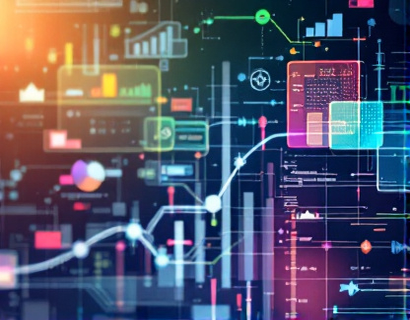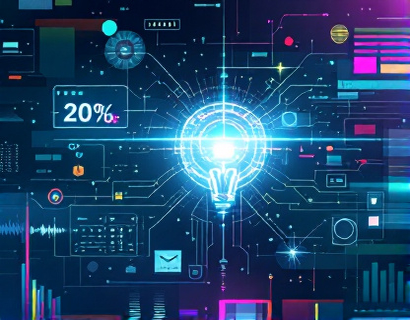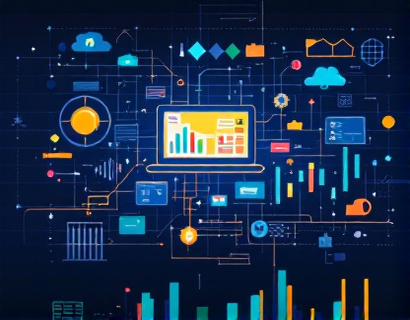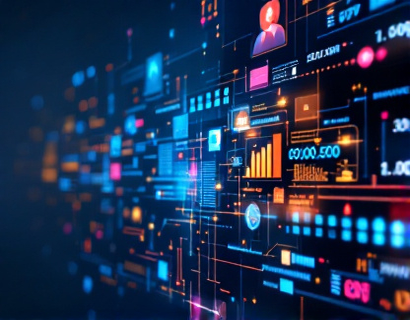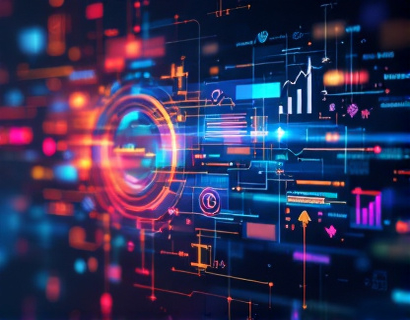AI and Crypto: Powering the Future of Digital Productivity
The intersection of artificial intelligence and cryptocurrency is giving birth to a new era of digital productivity, one that promises to revolutionize how we manage tasks and optimize workflows. This transformative journey is not just about adopting new technologies but about embracing a paradigm shift in how we perceive and interact with digital tools. For tech-savvy professionals and early adopters, this convergence offers unprecedented opportunities to enhance efficiency, security, and innovation in their daily operations.
The integration of AI and cryptocurrency is not merely a technological curiosity but a practical solution to some of the most pressing challenges in the digital world. AI brings intelligence, automation, and predictive capabilities to the table, while cryptocurrency provides a decentralized, secure, and transparent means of transaction and data management. Together, they form a powerful synergy that can redefine productivity in ways previously unimaginable.
Enhanced Task Management with AI
AI-driven task management tools are at the forefront of this revolution. These tools leverage machine learning algorithms to understand user behavior, predict task priorities, and automate routine activities. For instance, AI can analyze a user's calendar, emails, and past task completion patterns to suggest the optimal time to tackle specific tasks. This not only saves time but also reduces cognitive load, allowing professionals to focus on high-value activities.
Moreover, AI can integrate with various productivity apps to create a seamless workflow. Imagine a scenario where your AI assistant not only schedules meetings but also prepares agendas, sends reminders, and even drafts follow-up emails based on the meeting outcomes. This level of automation is not just convenient; it's essential for maintaining productivity in an increasingly complex and fast-paced work environment.
Decentralized Workflow Optimization with Cryptocurrency
Cryptocurrency plays a crucial role in optimizing workflows by providing a decentralized and secure means of transaction. Traditional payment methods often involve intermediaries, which can lead to delays and increased costs. Cryptocurrency eliminates these intermediaries, enabling faster and more cost-effective transactions. This is particularly beneficial for global teams and businesses that frequently engage in cross-border transactions.
Beyond payments, cryptocurrency can be used to tokenize assets and create incentive mechanisms within organizations. For example, a company can issue tokens to employees as a form of compensation or reward for achieving specific milestones. These tokens can be traded or redeemed for various benefits, fostering a culture of performance and engagement. The transparency and immutability of blockchain technology ensure that such systems are fair and tamper-proof.
Security and Privacy in AI and Crypto Integration
Security and privacy are paramount in the AI and crypto ecosystem. AI systems can enhance security by detecting anomalies and potential threats in real-time. Machine learning models trained on vast datasets can identify patterns indicative of cyber attacks, allowing for proactive measures to be taken. This is particularly important as the number of cyber threats continues to rise.
Cryptocurrency, with its inherent cryptographic techniques, provides a robust layer of security for data storage and transmission. Blockchain technology ensures that data is immutable and can be verified by multiple parties, reducing the risk of fraud and data breaches. For professionals handling sensitive information, this combination offers a high level of confidence in the security of their digital assets.
Innovative Applications in Various Industries
The potential applications of AI and crypto extend far beyond general productivity tools. In the healthcare sector, AI can analyze medical data to predict patient outcomes and optimize treatment plans, while cryptocurrency can facilitate secure and private sharing of medical records. In the finance industry, AI-driven trading algorithms combined with crypto assets can create more efficient and transparent trading platforms. The real estate sector can benefit from smart contracts on blockchain, streamlining property transactions and reducing fraud.
For businesses, the integration of AI and crypto can lead to innovative business models. For instance, a company can use AI to optimize supply chain operations and cryptocurrency to create a decentralized marketplace for suppliers and customers. This not only enhances efficiency but also builds trust and transparency in the supply chain.
Challenges and Considerations
Despite the numerous benefits, the integration of AI and crypto is not without challenges. One of the primary concerns is the regulatory landscape. As both technologies are relatively new, regulations are still evolving, and compliance can be complex. Professionals need to stay informed about the legal requirements in their respective regions to ensure they are operating within the bounds of the law.
Another consideration is the technical expertise required to implement and maintain AI and crypto solutions. While user-friendly tools are becoming more prevalent, a certain level of technical knowledge is still necessary. Organizations should invest in training and development to equip their teams with the skills needed to leverage these technologies effectively.
Future Trends and Opportunities
The future of AI and crypto in digital productivity is bright, with several emerging trends and opportunities on the horizon. One such trend is the development of AI-powered virtual assistants that can operate on blockchain networks, providing secure and decentralized assistance. These assistants could manage everything from personal schedules to complex business operations, all while ensuring data privacy and security.
Another exciting area is the integration of AI with decentralized applications (dApps). dApps leverage blockchain technology to create applications that are transparent, secure, and resistant to censorship. AI can enhance these applications by providing intelligent features such as predictive analytics, natural language processing, and automated decision-making. This combination has the potential to revolutionize industries by creating more resilient and user-centric digital solutions.
Furthermore, the rise of Web3, a decentralized internet powered by blockchain, AI, and other emerging technologies, promises to redefine the digital experience. In this new web, users will have greater control over their data and online identities, with AI-driven tools enhancing their interactions and experiences. The potential for innovation in areas such as gaming, social media, and e-commerce is immense.
Conclusion
The convergence of AI and cryptocurrency is not just a technological trend but a fundamental shift in how we approach digital productivity. For tech-savvy professionals and early adopters, embracing this synergy can lead to significant improvements in efficiency, security, and innovation. As the technologies continue to evolve, the opportunities for creating smarter, more secure, and more decentralized digital solutions will only grow. By staying informed and proactive, professionals can position themselves at the forefront of this exciting new era.





